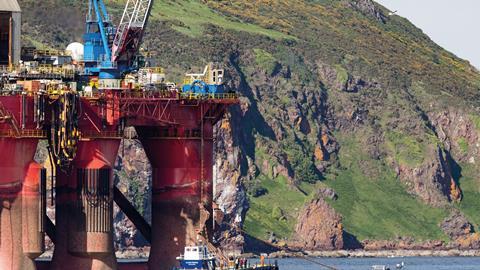Climate change litigation continues to dominate the legal headlines, as increasing numbers of claims seeking to hold governments and companies to account for their climate change commitments are pursued. However, as demonstrated by the recent case of Greenpeace Ltd v The Advocate General, not all courts consider the effects of fossil fuel use to be a legal issue.

In this case, Greenpeace appealed to the Scottish Court of Session against the decision made by the secretary of state for business, energy and industrial strategy (the SoS) and the Oil and Gas Authority (OGA) to grant BP Exploration Operating Company Ltd and Ithaca Energy (UK) Ltd consent for two new production wells in the Vorlich oil field in the North Sea.
The OGA had granted consent under section 3(1) of the Petroleum Act 1998, following a decision by the SoS that consent could be granted under regulation 5(A1) of the Offshore Petroleum Production and Pipelines (Assessment of Environmental Effects) Regulations 1999 (the 1999 regulations).
Greenpeace originally sought to have the OGA’s decision reviewed in the High Court in London, alleging that, in deciding to approve the granting of consent, the SoS had failed to take into account the effect of the consumption of the oil on the UK’s carbon budget and its contribution to climate change. However, the High Court refused permission for judicial review, so Greenpeace then lodged an appeal against the consent and a parallel petition for judicial review in Scotland. Permission for judicial review was also refused by the Scottish Court of Session, but the appeal proceeded.
The appeal was primarily raised on certain technical grounds that the notice requirements pursuant to the 1999 regulations had not been complied with, such that the public had been deprived of their right to make representations opposing the consent and were consequently prejudiced. But the real heart of Greenpeace’s case was that, when granting consent, the SoS and the OGA had failed to take into account the impact of the consumption of the oil that would be produced from the Vorlich field by end-users.
The Court of Session firmly rejected the appeal on both grounds. It largely accepted the submissions by the SoS and the OGA that the procedural publication formalities of awarding a permit pursuant to the 1999 regulations were ‘substantially met’ and held that Greenpeace’s case was ‘overwhelmingly technical and unconvincing’. Further, it rejected the argument that end-user consumption of oil and gas is a relevant consideration when deciding whether to award a permit for a fossil fuel extraction project.

Leaving no room for ambiguity, the court relied on Holgate J’s reasoning in R (Finch) v Surrey County Council, in which the court held that the legal test of a direct or indirect environmental effect must be physically related to the site where the project is developed (and where relevant planning permission is sought). As a result, the ‘inevitable consequences’ that occurred after the point of extracting raw materials were insufficiently proximate to the project for consideration in the environmental assessment.
On this basis, the court held that the SoS and the OGA were obliged only to consider the environmental effects of drilling the wells, removing the oil and gas, and depositing and operating an exploration rig or rig onsite, and that the relevant considerations that had to be taken into account in preparing an environmental assessment are those set out in regulation 3A of the 1999 regulations. The court also noted that, even applying the most broad interpretation of this regulation, its express wording could not be ignored, and this does not refer to the consumption of hydrocarbons produced by the project.
Notably, the court relied on R (Finch) in support of its view that the transition to a low-carbon society in accordance with the Climate Change Act 2008 remained the purview of the UK government. It also agreed with the SoS’s argument that environmental assessments that considered the effects – whether local or global – of the use of fossil fuel by the final consumer ‘would not be practicable’ and noted that, ultimately, this is a political, rather than legal, issue.
Mark Clarke is a partner and Gwen Wackwitz an associate at White & Case
































No comments yet